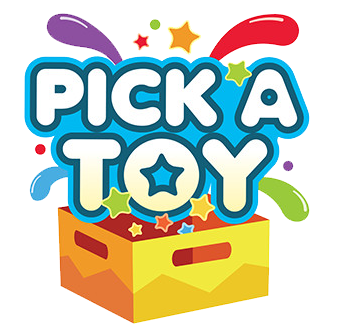Title: The Benefits of Play: How Toys Impact Child Development
Introduction
Play is the universal language of childhood. It's the way children explore their world, learn about themselves and others, and develop essential life skills. One of the primary vehicles for play is toys. From building blocks to stuffed animals, toys play a pivotal role in shaping a child's physical, cognitive, emotional, and social development. In this blog, we'll delve into the numerous benefits of play and how toys impact child development.
1. Cognitive Development
a. Problem-Solving Skills: Many toys, such as puzzles and building blocks, challenge children to think critically and solve problems. These activities promote cognitive skills like spatial awareness, logic, and reasoning.
b. Creativity and Imagination: Open-ended toys like art supplies, dolls, and action figures encourage imaginative play. Children use their creativity to create stories, scenarios, and worlds, fostering a vivid imagination.
c. Mathematical Concepts: Some toys, like counting bears or shape sorters, introduce basic mathematical concepts such as counting, sorting, and pattern recognition.
2. Motor Skills
a. Fine Motor Skills: Toys that require intricate hand movements, like coloring or playing with small blocks, enhance fine motor skills. These skills are essential for tasks like writing and buttoning clothes.
b. Gross Motor Skills: Toys that encourage physical activity, such as balls, bikes, and climbing structures, help children develop coordination, balance, and strength.
3. Social and Emotional Development
a. Social Skills: Toys often facilitate social interaction, whether through board games, role-playing with dolls, or sharing and taking turns. These interactions help children develop social skills like cooperation, communication, and empathy.
b. Emotional Expression: Toys can be a means for children to express and process their emotions. Dolls, action figures, or puppets allow them to act out and make sense of their feelings.
c. Self-Confidence: Mastering a new skill or achieving a goal during playtime boosts a child's self-esteem and self-confidence.
4. Language Development
a. Vocabulary: Toys like books, puzzles, and educational games introduce new words and concepts, enriching a child's vocabulary.
b. Communication Skills: Interactive toys and games that require talking and listening help improve communication skills.
5. Sensory Exploration
a. Sensory Stimulation: Toys with various textures, sounds, and colors stimulate a child's senses, aiding in sensory development.
b. Sensory Regulation: Some toys, like stress balls or sensory bins, can help children self-regulate their sensory experiences and manage stress or anxiety.
6. Cultural Awareness
Toys can introduce children to different cultures and perspectives. Dolls, puzzles, or books that represent diverse backgrounds encourage cultural awareness and foster an inclusive worldview.
Conclusion
Toys are more than just playthings; they are powerful tools for child development. Through play, children learn about themselves and the world around them, develop essential skills, and lay the foundation for a lifetime of learning. So, when you see your child engrossed in building with blocks, creating art, or playing a board game with friends, know that they are not just having fun; they are also developing critical skills and knowledge that will benefit them throughout their lives.
